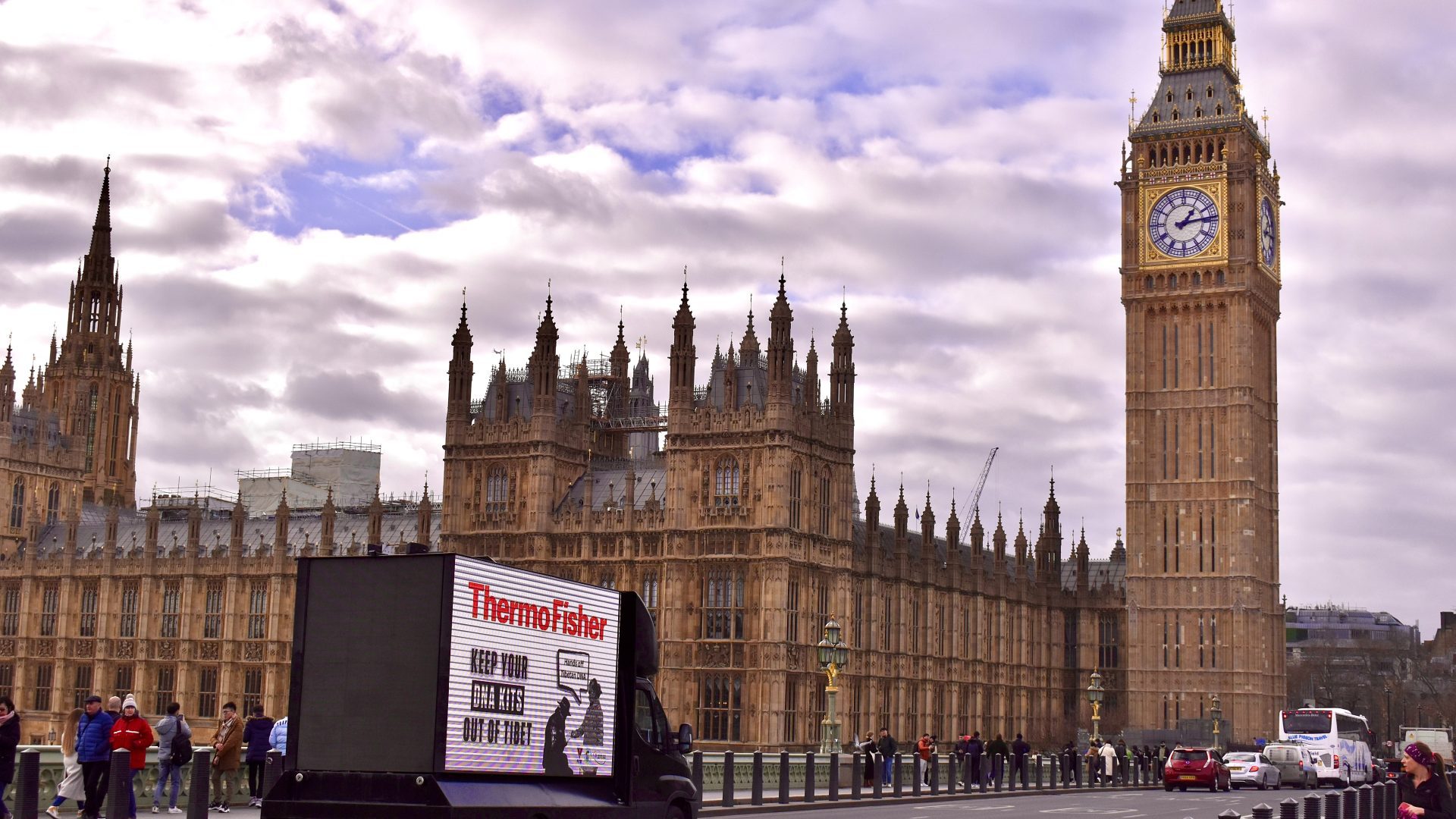
Open letter to Marc Casper, CEO, Thermo Fisher Scientific
Open letter to Marc Casper, CEO, Thermo Fisher Scientific
Dear Marc Casper,
It has been over 100 days since Tibetans and Tibet supporters around the world first reached out to you and your company, Thermo Fisher, with a simple, decisive demand: End the supply of your DNA kits into occupied Tibet.
When you refused to engage with us, we launched a global week of action – in a matter of days you and your colleagues were targeted with thousands of emails from the public – each one urging you to listen to the affected Tibetan community and stop enabling the occupying forces to steal the DNA of Tibetans; and this number continues to grow.
We have also spoken directly to your Thermo Fisher staff in some countries explaining what the company is supporting. Everyone that we spoke to expressed surprise, dismay, and disappointment that Thermo Fisher was not only supplying police in occupied Tibet with its DNA kits but were also defending these profit-making deals and putting profit over human rights.
We have requested a response from you to some key questions on multiple occasions, as well as offered you the opportunity to meet with the Tibetan community and representatives to discuss our concerns. These requests have not been responded to adequately and our offer to meet appears to have fallen on deaf ears.
We want to once again emphasize the strength of concern from the Tibetan freedom movement, well-established human rights organizations, elected representatives, and a wealth of the global public that China’s policing of occupied Tibet cannot be considered to be taking place in a normal environment. Police forces in occupied Tibet are at the forefront of human rights abuses, including forced disappearances, torture, beatings of protesters, mass surveillance, and arbitrary killings. And as we have made clear, they are now systematically collecting DNA samples from Tibetans, with as many as 1.2 million Tibetans targeted in this excessive and discriminatory way.
To give the police more resources to violate Tibetans’ privacy and further enable surveillance over them is to be an enabler of these police abuses.
We note that while you have not responded to our requests to meet and discuss our urgent concerns, you have issued a response to the Congressional-Executive Commission on China (CECC). We have created a point-by-point reply to the claims made in your reply to the CECC. We hope you will take these points, from Tibet groups and science experts, into consideration.
It is not too late to reverse course and take an ethical stance by committing to blocking the supply of DNA kits to occupied Tibet. As ever, our door remains open for a meeting to discuss why this is urgently necessary and how it can be done.
Until then, the issue will not go away, and neither will our protests.
Yours sincerely,
Mandie McKeown, Executive Director, International Tibet Network
Pema Doma, Executive Director, Students for a Free Tibet
Kelsang Phuntsok, President, Tibetan Association Boston
John Jones, Head of Campaigns Policy and Research, Free Tibet
Lhadon Tethong, Director, Tibet Action Institute
Gonpo Dhondup, President, Tibetan Youth Congress
Dalha Kharsar, President, Tibetan Youth Association Europe
Ngawang Tashi, US Tibet Committee
Tenzing Dolma, President, Tibetan Women’s Association
Uwe Meya, Swiss Tibetan Friendship Association
Martin Bursik, Czech Support Tibet
Zoe Bedford, Executive Director, Australia Tibet Council
Mattias Björnerstedt, President, Swedish Tibet Committee
Anders H. Andersen, President, The Tibet Support Committee, Denmark

